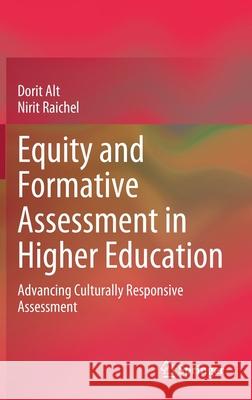Equity and Formative Assessment in Higher Education: Advancing Culturally Responsive Assessment » książka
topmenu
Equity and Formative Assessment in Higher Education: Advancing Culturally Responsive Assessment
ISBN-13: 9783030716431 / Angielski / Twarda / 2021 / 164 str.
Kategorie:
Kategorie BISAC:
Wydawca:
Springer
Język:
Angielski
ISBN-13:
9783030716431
Rok wydania:
2021
Wydanie:
2021
Ilość stron:
164
Waga:
0.43 kg
Wymiary:
23.39 x 15.6 x 1.12
Oprawa:
Twarda
Wolumenów:
01
Dodatkowe informacje:
Wydanie ilustrowane











